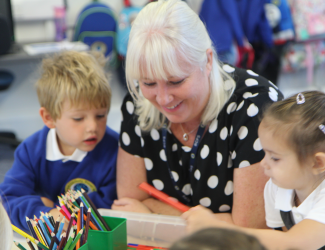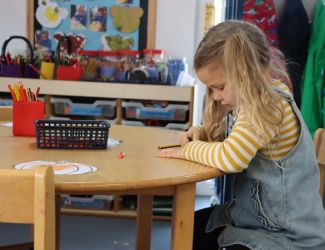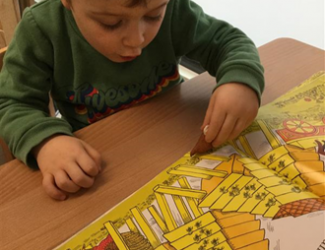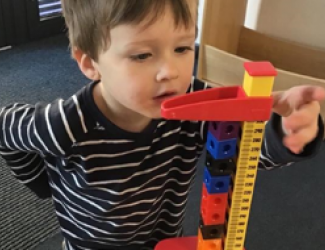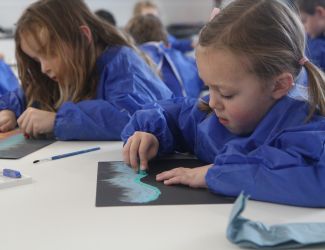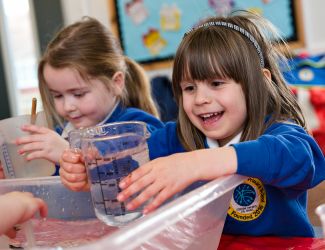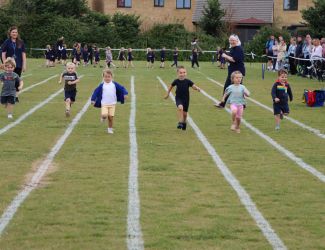Nursery Literacy Curriculum
Children will be taught...
EYFS Development Matters Statements Birth to Three
- Enjoy songs and rhymes, tuning in and paying attention.
- Join in with songs and rhymes, copying sounds, rhythms, tunes and tempo.
- Say some of the words in songs and rhymes.
- Copy finger movements and other gestures.
- Sing songs and say rhymes independently, for example, singing whilst playing.
- Enjoy sharing books with an adult.
- Pay attention and respond to the pictures or the words.
- Have favourite books and seek them out, to share with an adult, with another child, or to look at alone.
- Repeat words and phrases from familiar stories.
- Ask questions about the book. Makes comments and shares their own ideas.
- Develop play around favourite stories using props.
- Notice some print, such as the first letter of their name, a bus or door number, or a familiar logo.
- Enjoy drawing freely.
- Add some marks to their drawings, which they give meaning to. For example: “That says mummy.”
- Make marks on their picture to stand for their name.
EYFS Development Matters Statements Three to Four Year Olds
- Understand the five key concepts about print:
- Print has meaning
- Print can have different purposes
- We read English text from left to right and from top to bottom
- The names of the different parts of a book
- Page sequencing
- Develop their phonological awareness, so that they can:
- Spot and suggest rhymes
- Count or clap syllables in a word
- Recognise words with the same initial sound, such as money and mother
- Engage in extended conversations about stories, learning new vocabulary.
- Use some of their print and letter knowledge in their early writing. For example: writing a pretend shopping list that starts at the top of the page; writing ‘m’ for mummy.
- Write some or all of their name.
- Write some letters accurately.

